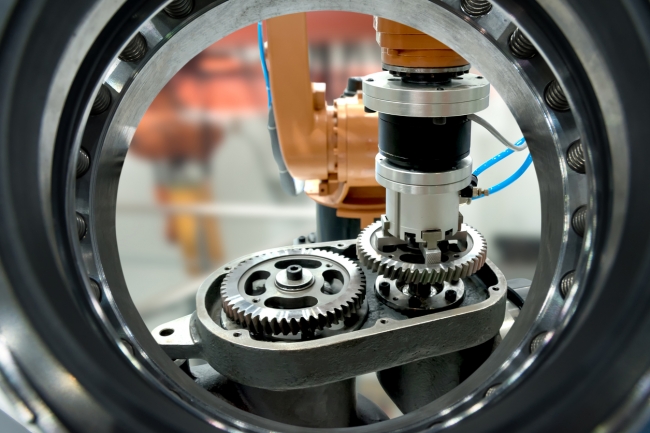5 minute read
Budget 2018: What manufacturers need to know
Tom Lawton, head of manufacturing at accountancy and business advisory firm BDO, reflects on Budget 2018 and the measures manufacturers need to be aware of.
BDO’s poll in the run up to the Autumn Budget 2018 asked for the opinions of 400 individuals and business leaders.
When asked what is the single most important action the Chancellor should take to boost the UK economy as Brexit approaches, most (59%) respondents wanted the Government to finalise Brexit negotiations to help restore business confidence, while a quarter (23%) said the focus should be on investing in Britain’s physical and digital infrastructure to tackle the productivity puzzle.
These two key themes will be familiar to those in the manufacturing sector. However, any major hopes for the sector were tempered with Brexit uncertainty casting shadows over his last Budget before Brexit.

The Chancellor promised £1.6bn of new investment into the government’s modern industrial strategy in a bid to ramp up the UK’s digital infrastructure / Picture: Getty/iStock
Despite Fiscal Phil’s ‘steady-as-she-goes’ approach, the Budget was peppered with more pro-business measures than many expected. Many of which are relevant to manufacturers today.
The Chancellor promised £1.6bn of new investment into the government’s modern industrial strategy in a bid to ramp up the UK’s digital infrastructure and help power Industry 4.0. It will also be followed by an additional £150m in funding for fellowships to foster the UK’s burgeoning skills pool with both home grown and international talent, and £115m for the UK’s range of digital catapult centres.
As always, the devil will be in the detail but here are the main things manufacturers need to be aware of – and potentially take action on – now.
Capital Allowances
The Chancellor committed to an increase in the Annual Investment Allowance (AIA) from £200,000 to £1m for two years from 1 January 2019. Although we would like to have seen this extended wider and for longer, this will provide a boost to the capital-intensive manufacturing sector as the AIA provides a 100% tax deduction in the year of spend.
Businesses with significant plans to invest in plant and machinery over the existing AIA of £200,000 may wish to spread or defer the expenditure to take advantage of the increase.
For manufacturers considering capital expenditure on property, there was also the announcement of a new Structures and Buildings Allowance (SBA). New non-residential structures and buildings will be eligible for a 2% capital allowance where all the contracts for the physical construction works are entered into on or after 29 October 2018. It should be a welcome boon for manufacturers with significant property plans and addresses a significant gap in the UK’s current capital allowances regime.

The Annual Investment Allowance (AIA) increases from £200,000 to £1m for two years from 1 January 2019 / Picture: Getty/iStock
Research & Development (R&D) Tax Relief and Patent Box
There had been concerns that R&D tax relief and the Patent Box regime would be amended in the Budget. However, it is pleasing to note that both R&D tax relief and the Patent Box regime remain intact and manufacturers should continue to make claims and benefit from the significant reliefs available. In particular, R&D tax relief is applicable in more situations than many manufacturers realise and is well worth exploring in further detail.
There was an announcement to address an identified abuse under the R&D tax relief SME regime. This will only affect a limited number of cases where there are very few employees in the claimant company and the R&D claim is made up of R&D sub-contracted to third parties or carried out by Externally Provided Workers.
Entrepreneurs’ Relief
There were also rumours circling before the Budget that Entrepreneurs’ Relief (ER) may be curtailed. Owners of manufacturing businesses will be pleased to note that the relief remains. However, the minimum hold period will be extended to two years for disposals after 5 April 2019.
There are also changes to the definition of a ‘personal company’ through a tightened 5% economic interest test and changes in this regard apply as of 29 October 2018. Owners of manufacturing businesses with an eye on exiting in the near future should re-assess their ER position.
Employment Taxes – Personal Service Companies (PSCs)
To help taxpayers comply with the existing rules and bring private sector organisations in line with public sector bodies and agencies, the Government will reform the off-payroll working rules (known as IR35) in the private sector. The change will be introduced from April 2020 but there will be exemptions for smaller businesses. This shifts the onus of applying IR35 onto the engager of the PSCs, rather than the worker and the PSC. If the engager thinks IR35 applies, it is required to deduct PAYE from the payment it makes to the PSC and pay employer’s NIC on that payment.
Manufacturers engaging workers through PSCs, or any other off-payroll labour, should take the opportunity to review their position and examine their potential exposure. The rules for IR35 are complex and do not apply in every scenario; manufacturers will need to establish how this change may apply and factor in the potential impact on the workforce.

Tom Lawton, Head of Manufacturing at BDO / Picture: BDO
Single Use Plastics
Given the direction of public opinion, there were also announcements to curb the production of single use plastics with a new tax from April 2022. Subject to consultation, this will be through a tax on the production and import of plastic packaging which contains less than 30% recycled plastic. Manufacturers of plastic packaging will need to consider whether the new tax will apply to them and how to take steps to mitigate it.
Infrastructure
Away from tax, there were funding announcements for infrastructure which will indirectly help manufacturers. Highways England will be boosted by £25.5bn of funding for major road upgrades between 2020 and 2025 and local councils will receive an extra £3.5bn for important local routes.
Summary
In summary, although there was little direct support for the manufacturing sector in this Budget, there is still plenty for businesses to get their heads around. Whilst there were welcome capital allowances changes to support capital investment, this comes at a time when business confidence (and investment plans) are still in limbo ahead of Brexit. We would continue to urge the government to support this vital sector, particularly those manufacturers seeking to secure investment, innovate, export and create employment.
You can access BDO’s full analysis of the Budget, which includes videos and detailed commentary here.
